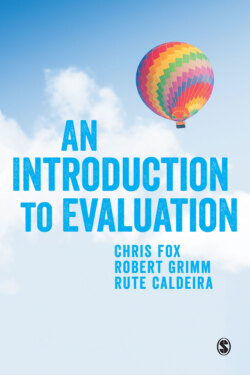Читать книгу An Introduction to Evaluation - Chris Fox - Страница 66
На сайте Литреса книга снята с продажи.
Chapter Summary
ОглавлениеEthics is about how we behave or should behave as individuals and as part of the society in which we live in interaction with others.
There are many professional societies, associations and committees which publish guidelines on ethical evaluation and scrutinise the ethical dimensions of evaluations.
Commonly accepted principles relate to participants’ and stakeholders’ rights: informed consent; voluntary participation; do no harm; and confidentiality and anonymity.
Evaluators’ ethical behaviour should be governed by concerns for professional integrity, openness and respect for diversity, and cultural competency.
Criticisms of ethical guidelines include the accusation that commonly accepted guidelines for ethical practice are ‘Western-centric’ and designed primarily to protect the interests of the evaluation profession.
Evaluators need to overcome the challenges posed by particular methodological approaches – for instance the use of randomisation or participatory action research –and factors outside the evaluator’s control such as power relations and intercultural communication.
